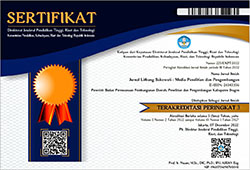Implications of the Blended Learning Method on the Competency of Cancer Palliative Training Participants in Central Java
DOI:
https://doi.org/10.32630/sukowati.v9i1.511Keywords:
blended learning, cancer palliative, trainingAbstract
The development of health worker competencies is crucial to increase the quantity and quality of health workers to meet the necessary qualifications and contribute transformation of health human resources. Training is an alternative to develop and enhance the capacity of health human resources. Cancer palliative training is one of the program established by the Directorate General of Health Workers to improve the competence of health workers in managing non-communicable diseases such as cancer. This training is conducted through blended learning. This research is an observational analytical study with a quantitative approach aimed at assessing the effectiveness of blended learning training on the competence of health workers in cancer palliative care in Central Java. The study utilized purposive sampling. Data collection using standardized instruments. Data analysis included univariate and bivariate. The analysis statistical results indicated significant differences in competencies, including knowledge, skills, and attitudes, between pretest and posttest scores (p < 0.05). In conclusion, there was significant improvement in knowledge competence following the blended learning training. This research provides valuable insights for training organizers and policymakers to select effective training methods to enhance the knowledge and competence of trainees.
Downloads
Published
How to Cite
Issue
Section
License
Copyright (c) 2025 Erma Shofia Afifah, Sofwan Indarjo, Arif Rahmat Kurnia

This work is licensed under a Creative Commons Attribution 4.0 International License.


















